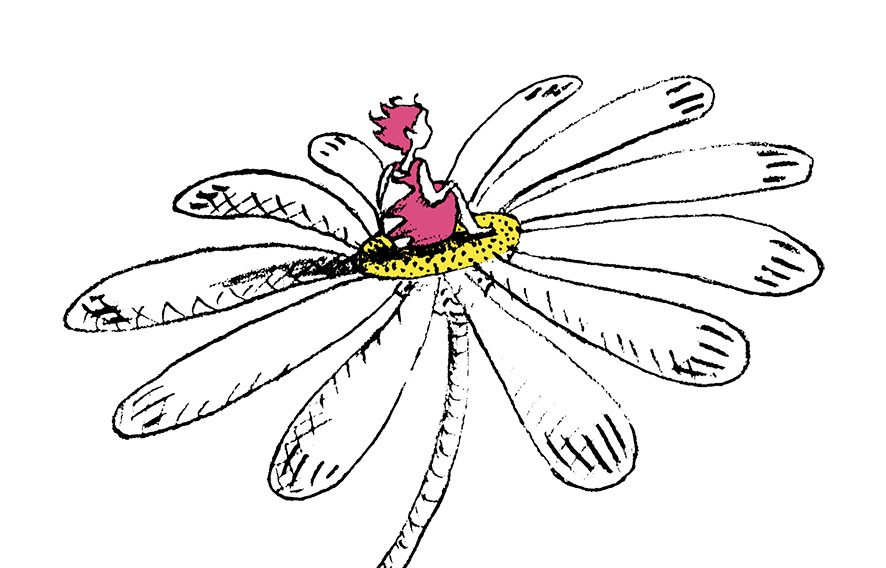The Daisy Garland Mindfulness Sessions
 Week 2: Mindfulness, Paying Attention and More on Self-Compassion
Week 2: Mindfulness, Paying Attention and More on Self-Compassion
Thank you for joining Week 2 of The Daisy Garland Mindfulness sessions.
This week, we started to look at some of the practical benefits of developing a mindfulness practice, one of which is the ability to improve our focus and attention.
Many of us experience increasing levels of distraction and an inability to concentrate on any one thing for very long. Exposed to anxiety-creating headlines, worrying about loved ones or simply trying to keep your head when all about you are at risk of losing theirs, it’s no wonder many of us feel unable to focus. So how could mindfulness help?
Mindfulness is often described as a particular way of paying attention: On purpose, in the present moment, non-judgmentally (with kindness to yourself). Although the definition is simple, putting this into practice in daily life is often a challenge. So how might developing mindfulness help us to focus and pay attention? In essence, the practice helps us to notice what is going on right now, in our present moment experience. It helps us to notice and let go of any thoughts and/or feelings we may have that distract us from that experience (if only in that moment) - strengthening our ability to stay present. There is also scientific evidence to show that long-term meditators often develop a thicker pre-frontal cortex - the area of the brain that helps us to pay attention. As mindfulness is a form of attention training, it’s logical that we can hope to improve our ability to pay attention over time with practice.
For those of you would like to find out more, I have edited a selection of this week’s suggested articles and videos on the theme of attention, focus and self-compassion.

- AUDIO: Focused Attention Meditation with Rich Fernandez. Click here.
- AUDIO: Bodyscan meditation by Gillian Higgins. Click here.
- ARTICLE: Pay Attention! Why Attention is the Foundation for Self-Management by Jeremy Hunter. Click here.
- ARTICLE: What is Self-Compassion? Click here
In this week’s session, I shared some further thoughts on the practice of self-compassion, namely treating yourself the way you would treat a friend who is having a hard time. We looked at how mindfulness and self-compassion relate to one another and explored some of the myths surrounding the practice of self-kindness.
Kristen Neff reminds us that when we practice self-compassion, we “deactivate the threat-defence system and activate the care system. Oxytocin and endorphins are released, which helps reduce stress and increase feelings of safety and security.” Perhaps consider what self-compassion means to you this week and notice the challenge of shifting from self-critical to self-kind.
This Week’s Prose
Franz Kafka
“You do not need to leave your room. Remain sitting at your table and listen. Do not even listen, simply wait, be quiet, still and solitary. The world will freely offer itself to you to be unmasked, it has no choice, it will roll in ecstasy at your feet.”
Meditation: Calming the Mind (Excerpt) by Bob Sharples
Don’t meditate to fix yourself, to improve yourself, to redeem yourself; rather, do it as an act of love, of deep warm friendship to yourself. In this way there is no longer any need for the subtle aggression of self-improvement, for the endless guilt of not doing enough. It offers the possibility of an end to the ceaseless round of trying so hard that wraps so many people’s lives in a knot. Instead there is now meditation as an act of love. How endlessly delightful and encouraging.
Still Water by WB Yeats
We can make our minds so like still water that beings gather about us, that they may see, it may be, their own images, and so live for a moment with a clearer, perhaps even fiercer life because of our quiet.
Stay connected with news and updates!
Join our mailing list to receive the latest news and updates from our team.
Don't worry, your information will not be shared.